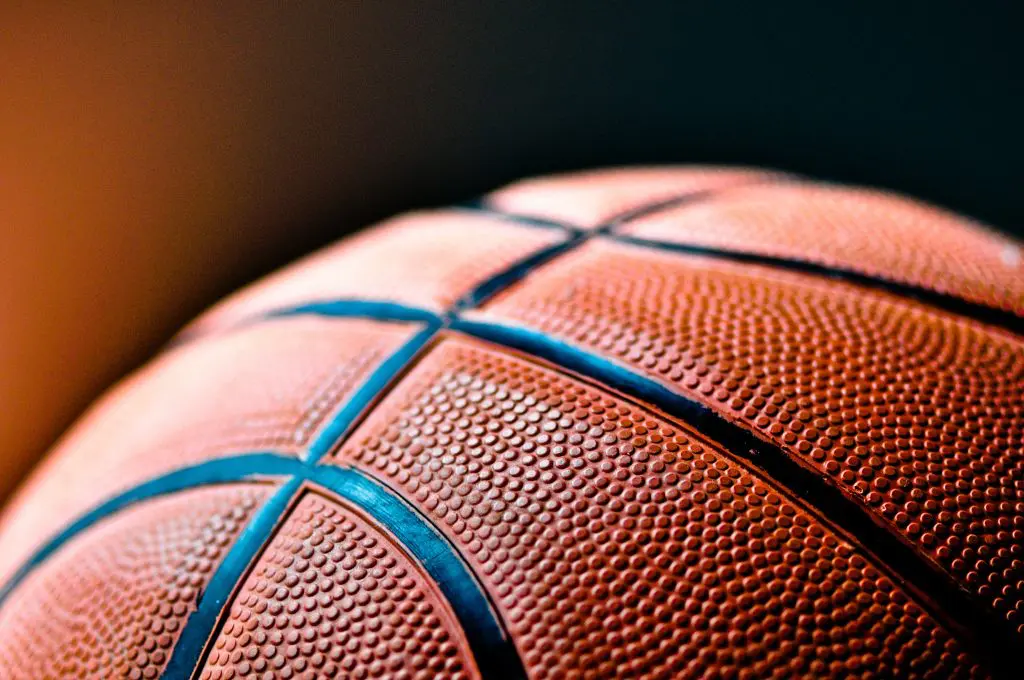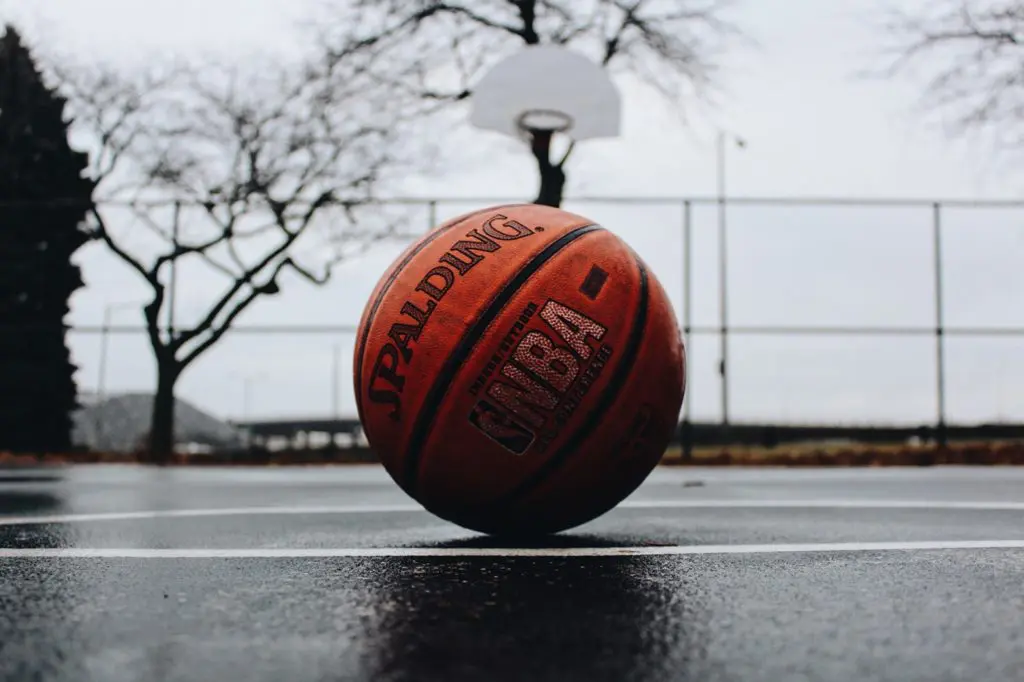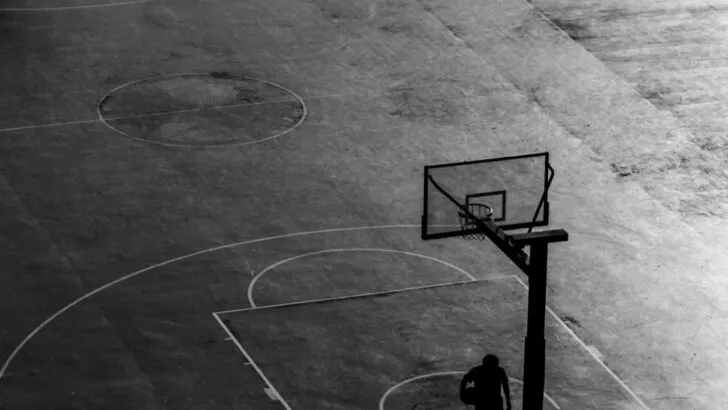How to Stop Thinking When Playing Basketball
Basketball, as a sport, is very much a non-thinking game. And while seemingly paradoxical, the true purpose and goal of any basketball player is to be able to play the game without too much thought or hesitation. In other words, whether you are just starting out in the game or are an avid player, you will want to reach a point in your game where you do not need to think of the next step or movement and simply act.
That’s why, below, we are going to fully review how to stop thinking when playing basketball. With our guide, you will be able to advance your basketball skills and IQ and better help yourself to innately understand the mechanisms of the game.
Why do You Want to Stop Thinking When Playing Basketball?
As mentioned above, and in previous posts, basketball is a game which is best played without thinking. And as the old basketball adage goes, “a thinking man, is a dead man”. The reason for this is that basketball, by its very nature, is a fast-paced, full-frontal game.
That is, in basketball, to succeed and to perform at a top level, players need to know, innately, what the next best move is. However, if you are overthinking or feeling levels of nervousness while on the court, you will be more likely to make a mistake or error, costing you and your team either the possession or the game.
As such, it would behoove a player and their team to learn how to stop thinking, and overthinking, while on the court. By not thinking, and simply acting on the court, a player is less likely to make an error or mistake and will play at their best.

Visualize the Game Beforehand
While we’ve previously discussed what basketball players do before a game and we’ve discussed ways to motivate yourself before the start of a game, it is also important to learn how to visualize the game before the tip-off. That is, before the start of the game, you should visualize yourself in the game and how you expect yourself to act.
Take some time before each game to sit in a quiet, secluded area and visualize yourself playing the game. Remember your fundamentals and your training and begin to anticipate the hurdles, barriers, and defense that you are likely to face.
Get comfortable with the challenge ahead. The game may likely be tough but if you fall back on your training, on your endless hours of practice, and your fundamentals, then you will be able to overcome those obstacles.
Practice Endlessly
While none of us particularly enjoy practice, it is, by-far, the single easiest method to learn how to stop thinking during a game. By practicing, and practicing endlessly, you will be able to better train your body on what to expect during a live, real game.
Practice, in of itself, may not always mimic an actual game. However, if you are able to practice and train in an environment and manner which better mimics a real game, then you will be better and more prepared for the obstacles faced during one.

Read Up on Sports Psychology
We’ve previously discussed some of the best sports psychology books currently available. And while many of those books were geared towards coaches and their staff, they can be great resources for players of the game. Sports psychology is inherently different than other forms of psychology and understanding its impact on an athlete will better allow you to overcome them.
Similarly, understanding the psychology behind an athlete will also better allow you to take advantage of the weaknesses in opposing players and teams. By being able to understand the fears, frustrations, and worries of the opposing player, you will place yourself at an advantage and be better able to leverage those fears for your own gain.
Focus on Your Weaknesses
All too often, a basketball player will overthink while on the court when it comes time to perform a specific act. Whether it’s a player shooting a free-throw shot or taking a game-winning buzzer beater, these players feel nervous and begin to overthink the specific act, likely due to the pressure felt.
However, one great way to remove the pressure and the overthinking that may occur during those instances is to simply focus on those areas of weakness during practice sessions. Whether it’s a free-throw shot, a three-pointer, or a simple layup, you should practice those acts repeatedly and until comfortable.
Famous NBA players such-as Stephen Curry and Kobe Bryant are extremely diligent and obsessive over their abilities to perform when they need to. However, in order for them to have reached the heights they reached, they needed to spend countless hours perfecting those performances.
And while you may not have the time to spend dedicated to perfecting a single shot or a crossover or a defensive maneuver, you should attempt your best to focus on your areas of weakness and improve that area. By doing so, you will be more confident in your abilities and for when the time comes for you to perform them.

Be “In” the Game
Similarly, and all too often, basketball players allow themselves to get distracted while playing a game. Whether due to another player on the court or the fans sitting courtside, players will allow their minds to wander and will not be fully engaged with the game.
These distractions will lessen your performance and cause you to be at a distinct disadvantage while on the court. As such, you will need to learn how to be fully “in” the game. That is, you should ignore all other distractions and focus solely on the game at hand.
By doing so, you will be more engaged with the game and with the next move, whatever it may be. Learn how to remove distractions and, if unable, simply learn how to tune them out. Rather, allow for your game to “speak” for itself.
Build a Level of Amnesia
While an odd statement, basketball is too often a mental game, even above a physical one. And when a player begins to lose confidence in their game, whether due to external factors or internal ones, those same players begin to doubt their own abilities.
That is incorrect and an error that many of us have. Rather, learn to build a level of amnesia while on the court. That is, learn to forget about the previous play, the previous error, or the previous missed shot. Learn to play the game on each play and let the previous mistake be in the past.
A poor shot, a turnover, or a missed layup shouldn’t affect your confidence. It happens and it happens to even the best players in the world. Rather, forget that it happened and continue to play the game in the way that you normally would.
